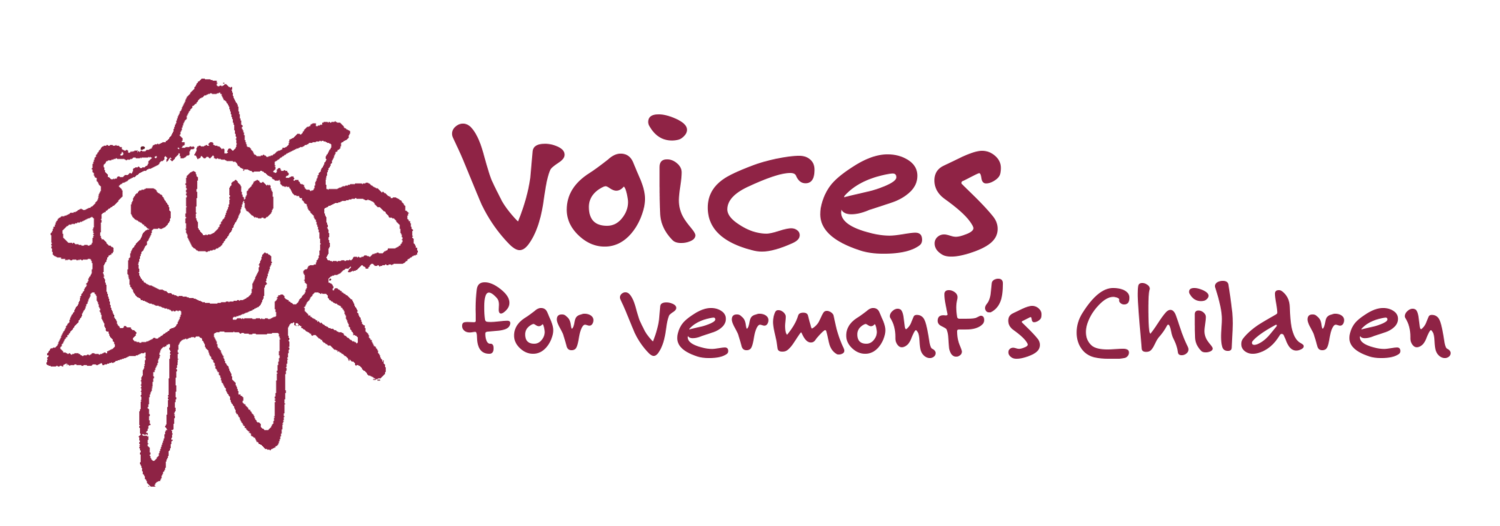Testimony to the Joint Legislative Child Protection Oversight Committee, November 18, 2015
Testimony to the Joint Legislative Child Protection Oversight Committee
November 18, 2015
Prepared by Michelle Fay, Associate Director
Thank you for the opportunity to testify. As you know, Voices for Vermont’s Children advocates for policies that enhance the well-being of children and youth in Vermont.
We bring our legislative priorities related to child protection today with the recognition that Act 60 is still new, and needs time to be tested. We also know that an already overtaxed, stressed system was thrown deeper into crisis with Lara Sobel’s murder.
For several years, Voices has advocated for an Office of Child Advocate to provide independent oversight of the child protection system. We still believe that this Office is a necessary component of an effective and constantly improving system, but we hesitate to create more layers of accountability without giving DCF and service providers the resources they need to fulfill their responsibilities. For that reason, our recommendations today focus on strengthening and supporting the core infrastructure of DCF as a mandatory first step in ensuring that Vermont children are protected from abuse and neglect.
Many of the solutions suggested by DCF to the committee rely on increased collaboration with community partners serving common clients. Collaboration is an excellent strategy to enhance services and improve outcomes, but it only works if each partner is able to invest time into the collaboration. Our understanding is that social workers do not have time to read the reports and recommendations prepared for them by partners. This means DCF is making significant and profound decisions about families without all the available information. This is not fair to families, it isn’t safe for DCF staff, and it is unacceptable for our children and youth.
Act 60’s intent section makes it clear that the legislature envisioned a child protection system that is both comprehensive and properly funded. Toward that end we advocate that the legislature requests and supports a budget reflecting:
staffing levels adequate to achieve at least a 15:1 average caseload ratio for social workers, using the caseload definition proposed by Daniel Despard from Casey Family Programs (family=case, except when children from one family are in multiple foster care placements, in which case each placement is counted as a case)
investments in training, supervision and support for front line social workers.
Voices commends the legislature’s inclusion of prevention language in Act 60. This was certainly the intention when differential response was implemented several years ago. Unfortunately good intentions alone will not turn the curve on child abuse and neglect. The system demands resources – and not only within the narrow definition of child protection. Families need economic security in order to create safe, supportive environments for children. The growing body of research around social determinants of health carries important implications for child protection, especially in relation to the impact of substance addiction on families. Health care interventions are substantially more likely to be successful if other basic needs – especially housing and nutrition – are met.
If the goal is for children to be raised in safe, stable families, it’s incumbent on us as a state to ensure that there is adequate safe, affordable housing, substance addiction treatment services, case management services, and other necessary supports – and that these services are integrated with child protection. We are setting people up to fail when we write case plans that include services that aren’t available in a reasonable distance or timeframe. Or when we expect parents to secure safe, affordable housing when it simply doesn’t exist. Throughout the human service system, seemingly small policy shifts can add up to major impacts on families.
Our goal is fully resourced system, where we can achieve outcomes that we can be proud of. It takes time to undo patterns and pathology. It also takes resources to honor our commitments, but we are currently providing only a fraction of those supports. As a result, we have dipped below our threshold of acceptable outcomes. Our kids, families, and community partners are not safe. We need to support our families and our state agencies first, and then we can hold them accountable for their ability to meet the important goals that we all share.
Michelle Fay mfay@voicesforvtkids.org 802-535-1463
